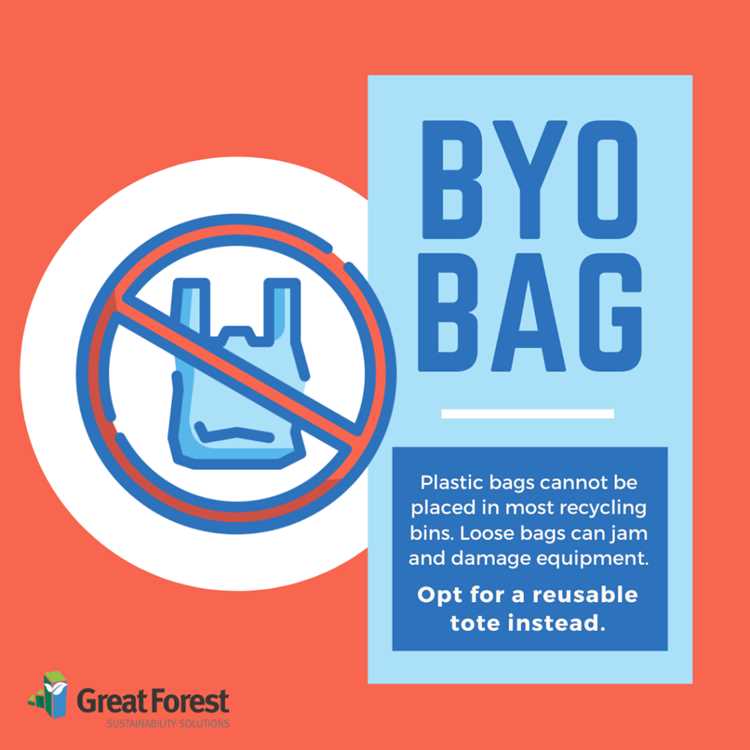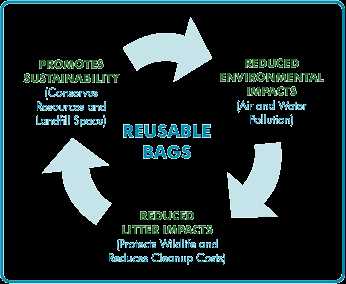Plastic bags have become a ubiquitous part of modern life, but their convenience comes at a significant cost to the environment. With their durability and widespread use, plastic bags have become a major source of pollution and waste. The negative impact of plastic bags on the environment cannot be overstated, making it essential to take action to reduce their use. One effective solution is the implementation of a plastic bag ban, which has been gaining traction in many countries around the world.
By banning plastic bags, we can significantly reduce the amount of plastic waste that ends up in landfills, rivers, and oceans. Plastic bags are not biodegradable and can take hundreds of years to break down, releasing harmful toxins into the environment during the process. These toxins can contaminate water sources, harm wildlife, and disrupt entire ecosystems. By eliminating plastic bags, we can mitigate these negative effects and protect the planet for future generations.
Moreover, the production of plastic bags consumes vast amounts of resources, including oil and gas. These resources are finite and contribute to climate change, making it crucial to find alternative solutions. By implementing a plastic bag ban, we can encourage the use of more sustainable and eco-friendly alternatives, such as reusable bags made from natural materials like cotton or jute. These alternatives are not only better for the environment but also promote a shift towards a more sustainable and circular economy.
Implementing a plastic bag ban also helps raise awareness about the larger issue of single-use plastic consumption. It serves as a reminder that our everyday choices have an impact on the environment and that we can all make a difference. By reducing our reliance on plastic bags, we can inspire others to do the same and create a snowball effect towards more sustainable habits. The plastic bag ban is not just about the bags themselves; it is a starting point for a broader movement towards a greener and more sustainable future.
- Why Reducing Plastic Waste is Crucial for a Sustainable Future
- Economic Impact
- Environmental Consequences
- The Environmental Impact of Plastic Bags
- The Need for a Plastic Bag Ban
- The Benefits of a Plastic Bag Ban
- Conclusion
- Benefits of Reducing Plastic Bag Usage
- 1. Reducing Marine Pollution
- 2. Decreasing Energy Consumption
- 3. Minimizing Landfill Waste
- 4. Protecting Wildlife
- 5. Promoting Sustainability
- undefined
- Why do we need to ban plastic bags?
- What are the alternatives to plastic bags?
- What impact do plastic bags have on marine life?
- Are there any benefits to banning plastic bags?
- What can individuals do to support the plastic bag ban?
- Why are plastic bags harmful to the environment?
- What are the alternatives to plastic bags?
Why Reducing Plastic Waste is Crucial for a Sustainable Future

Plastic waste has become a major global issue with a detrimental impact on our environment. The excessive use of plastic has led to pollution, habitat destruction, and health risks for both humans and wildlife. In order to ensure a sustainable future, it is crucial that we take immediate action to reduce plastic waste.
Economic Impact
One of the main reasons to reduce plastic waste is its economic impact. The production and disposal of plastic products create a significant financial burden for businesses and governments. The cost of manufacturing plastic, as well as its transportation and waste management, contribute to a cycle of environmental degradation. By reducing plastic waste, we can mitigate these costs and redirect resources towards more sustainable alternatives.
Environmental Consequences
Plastic pollution has severe consequences for our environment. When plastic waste is not properly managed, it ends up in our oceans, rivers, and landfills, causing harm to marine life and bird species. Plastic waste can take hundreds of years to decompose, leading to long-term pollution. Additionally, the production of plastic items contributes to greenhouse gas emissions and depletes natural resources. By reducing plastic waste, we can protect ecosystems, conserve resources, and minimize our carbon footprint.
| Benefits of Reducing Plastic Waste |
|---|
| 1. Conservation of natural resources |
| 2. Reduction of greenhouse gas emissions |
| 3. Protection of wildlife and ecosystems |
| 4. Improvement of public health |
| 5. Promotion of sustainable alternatives |
In conclusion, reducing plastic waste is crucial for a sustainable future. By addressing the economic and environmental consequences of plastic pollution, we can protect our planet, conserve resources, and create a healthier environment for future generations.
The Environmental Impact of Plastic Bags
Plastic bags have become an ubiquitous part of our daily lives, but their environmental impact is severe and alarming. These lightweight and convenient bags are used by billions of people worldwide, but the consequences of their production, consumption, and disposal are threatening the environment in numerous ways.
One of the most evident environmental impacts of plastic bags is their contribution to polluting our oceans and waterways. When not disposed of properly, these bags often end up in rivers, streams, and ultimately reach the ocean, where they pose a significant threat to marine life. Marine animals such as turtles, dolphins, and seabirds often mistake plastic bags for food, leading to ingestion and entanglement, which can be fatal.
Furthermore, the production of plastic bags requires the extraction of fossil fuels like oil and gas, which are non-renewable resources. The process of extracting and refining these fossil fuels contributes to air and water pollution, as well as greenhouse gas emissions. Additionally, the manufacturing of plastic bags releases toxic chemicals into the environment, further contributing to pollution and ecosystem degradation.
Plastic bags are also notorious for their long lifespan. It takes hundreds of years for a single plastic bag to decompose naturally, and even then, it breaks down into smaller microplastic particles that remain in the environment indefinitely. These microplastics can then be ingested by animals and enter the food chain, posing a potential threat to human health as well.
By banning plastic bags, we can actively reduce their environmental impact and promote sustainability. Alternative eco-friendly options such as reusable bags made from natural materials like cotton or jute can be used instead. These alternatives are durable, biodegradable, and can be reused multiple times, significantly reducing waste and pollution. Furthermore, the ban can also encourage individuals to adopt more environmentally friendly habits and encourage the development of innovative solutions to tackle plastic pollution.
In conclusion, the environmental impact of plastic bags is detrimental and far-reaching. From polluting our oceans and waterways to contributing to climate change and ecosystem degradation, the consequences of these bags are severe. By implementing a plastic bag ban and advocating for sustainable alternatives, we can make a significant positive impact on our planet and work towards a more sustainable future.
The Need for a Plastic Bag Ban
The use of plastic bags has become widespread in recent years, but their impact on the environment has been devastating. Plastic bags are non-biodegradable and can take hundreds of years to break down. This means that the plastic bags we use today will be around for generations to come, polluting our oceans, rivers, and landfills.
Plastic bags also pose a significant threat to wildlife. Many animals mistake plastic bags for food and end up ingesting them, leading to illness or death. In addition, plastic bags can entangle animals, causing serious injuries and hindering their ability to move and hunt.
Furthermore, the production of plastic bags requires significant amounts of natural resources and contributes to greenhouse gas emissions. Plastic bags are typically made from fossil fuels, such as petroleum, which are not only finite resources but also major contributors to climate change. By banning plastic bags, we can reduce our dependence on these resources and mitigate the harmful effects of greenhouse gas emissions.
A plastic bag ban would also promote the use of more sustainable alternatives. Reusable bags made from materials like canvas or organic cotton can be used repeatedly, reducing the need for single-use plastic bags. These reusable bags are sturdier and more durable than plastic bags, making them a better long-term investment for shoppers.
The Benefits of a Plastic Bag Ban
Implementing a plastic bag ban would have numerous benefits for our environment and communities. Firstly, it would help reduce litter and keep our streets, parks, and waterways cleaner. With fewer plastic bags in circulation, there would be less chance of them ending up as litter and causing harm to wildlife.
A plastic bag ban would also encourage consumers to adopt more sustainable habits. By bringing their own reusable bags, people would become more conscious of their consumption and contribute to reducing plastic waste. This shift in behavior would have a positive ripple effect on other aspects of sustainability.
Additionally, a plastic bag ban could create opportunities for local businesses. Many small businesses produce and sell reusable bags, and a ban on plastic bags would increase demand for these products. This could lead to economic growth, job creation, and increased support for local industries.
Conclusion

A plastic bag ban is an essential step towards achieving sustainability. By reducing plastic waste, minimizing harm to wildlife, conserving natural resources, and promoting more sustainable alternatives, we can create a cleaner, healthier planet for current and future generations.
Benefits of Reducing Plastic Bag Usage
Reducing plastic bag usage can have a significant positive impact on the environment and our overall sustainability efforts. Here are some of the key benefits:
1. Reducing Marine Pollution
Plastic bags are one of the major causes of marine pollution. When they end up in the ocean, they pose a serious threat to marine life, such as fish, turtles, and seabirds. By reducing the usage of plastic bags, we can help protect these vulnerable creatures and preserve the delicate marine ecosystem.
2. Decreasing Energy Consumption
The production of plastic bags requires a substantial amount of energy, which contributes to carbon emissions and climate change. By reducing plastic bag usage, we can reduce the demand for new bags and, thus, decrease energy consumption and greenhouse gas emissions.
3. Minimizing Landfill Waste
Plastic bags are not easily biodegradable and can take hundreds of years to break down. This means that they end up in landfills and remain there for an extended period, taking up valuable space and contributing to pollution. By reducing plastic bag usage, we can minimize the amount of waste going to landfills and promote more sustainable waste management practices.
4. Protecting Wildlife

Many animals mistake plastic bags for food and end up ingesting them. This can lead to severe health issues and even death. By reducing the usage of plastic bags, we can help protect wildlife and prevent these harmful incidents from occurring.
5. Promoting Sustainability
Reducing plastic bag usage is a simple yet effective way to promote sustainability in our daily lives. By adopting reusable alternatives, such as cloth bags or paper bags, we can contribute to the overall effort of reducing our ecological footprint and creating a more sustainable future.
In conclusion, reducing plastic bag usage can bring about numerous benefits for the environment, wildlife, and overall sustainability. It is a small change that can make a big difference in preserving our planet for future generations.
undefined
Why do we need to ban plastic bags?
Banning plastic bags is essential for sustainability because they have a harmful impact on the environment. They can take hundreds of years to decompose, leading to waste accumulation in landfills and oceans. This poses a significant threat to wildlife and ecosystems. By banning plastic bags, we can encourage the use of more sustainable alternatives like reusable bags, reducing our dependence on single-use plastics.
What are the alternatives to plastic bags?
There are several alternatives to plastic bags that are more sustainable. One popular option is to use reusable bags made from materials like cotton or canvas. These bags can be used multiple times and are more durable than plastic bags. Another alternative is paper bags, which are biodegradable and can be recycled. Some stores also offer biodegradable or compostable bags made from plant-based materials.
What impact do plastic bags have on marine life?
Plastic bags have a severe impact on marine life. Many marine animals mistake plastic bags for food and consume them, leading to injury or death. The bags can become tangled around an animal’s body, preventing them from swimming or hunting effectively. Additionally, plastic bags break down into microplastics, which are ingested by smaller marine organisms and can enter the food chain, ultimately affecting larger species, including humans.
Are there any benefits to banning plastic bags?
Yes, banning plastic bags has numerous benefits. It helps reduce plastic waste and prevents pollution of landfills and oceans. Banning plastic bags also encourages individuals to adopt more sustainable behaviors and use reusable bags. This, in turn, reduces our dependence on fossil fuels used in plastic bag production and reduces greenhouse gas emissions. Overall, it promotes a more sustainable and environmentally-friendly way of living.
What can individuals do to support the plastic bag ban?
There are several ways individuals can support the plastic bag ban. Firstly, they can start using reusable bags for their shopping needs. By doing so, they eliminate the need for single-use plastic bags altogether. Secondly, individuals can spread awareness about the harmful impact of plastic bags on the environment and encourage their friends and family to also switch to reusable options. Lastly, they can support businesses and policymakers who are advocating for and implementing plastic bag bans.
Why are plastic bags harmful to the environment?
Plastic bags are harmful to the environment because they are made from non-renewable resources, take hundreds of years to decompose, and often end up in oceans and waterways, causing pollution and endangering marine life.
What are the alternatives to plastic bags?
There are several alternatives to plastic bags, including reusable cloth bags, paper bags, and biodegradable bags made from plant-based materials. These alternatives are more sustainable as they can be used multiple times and have less impact on the environment.